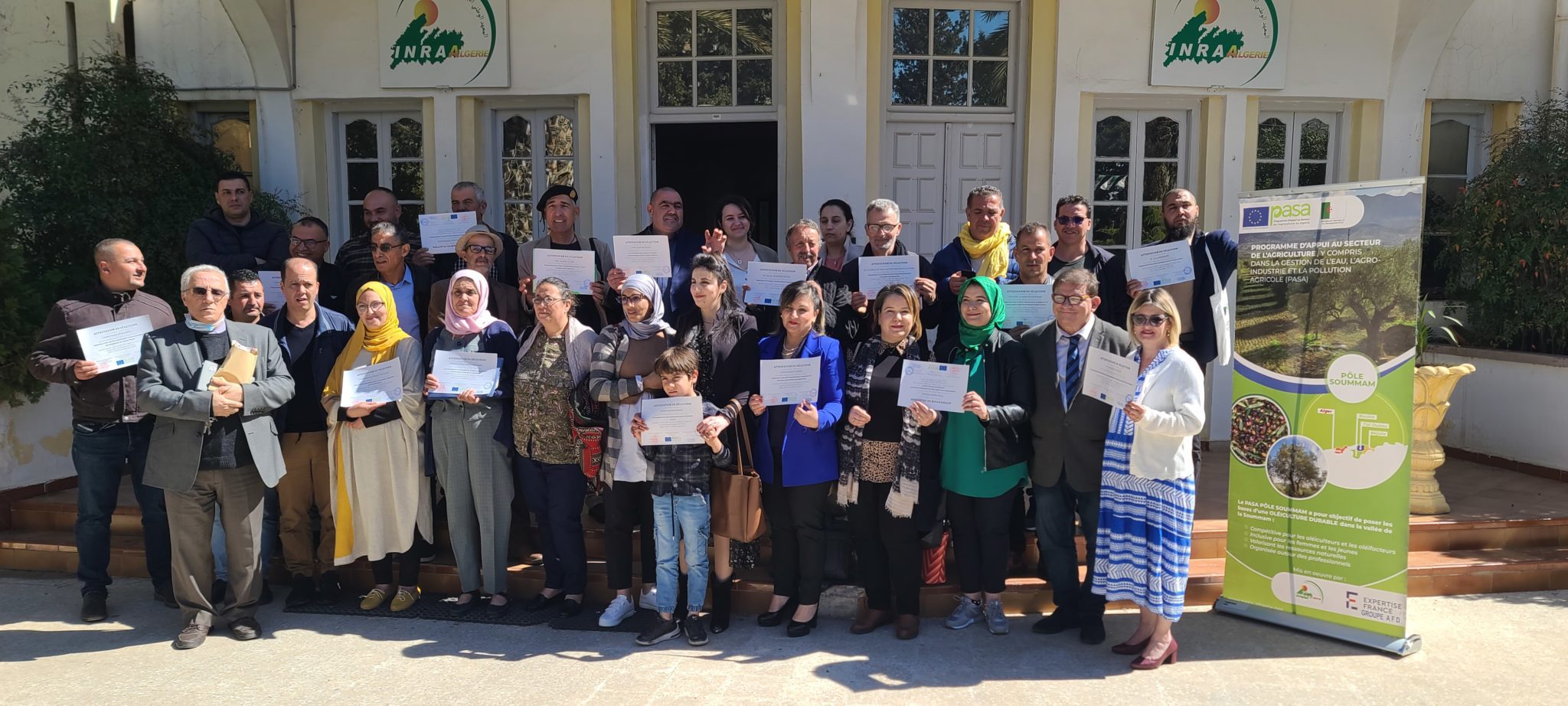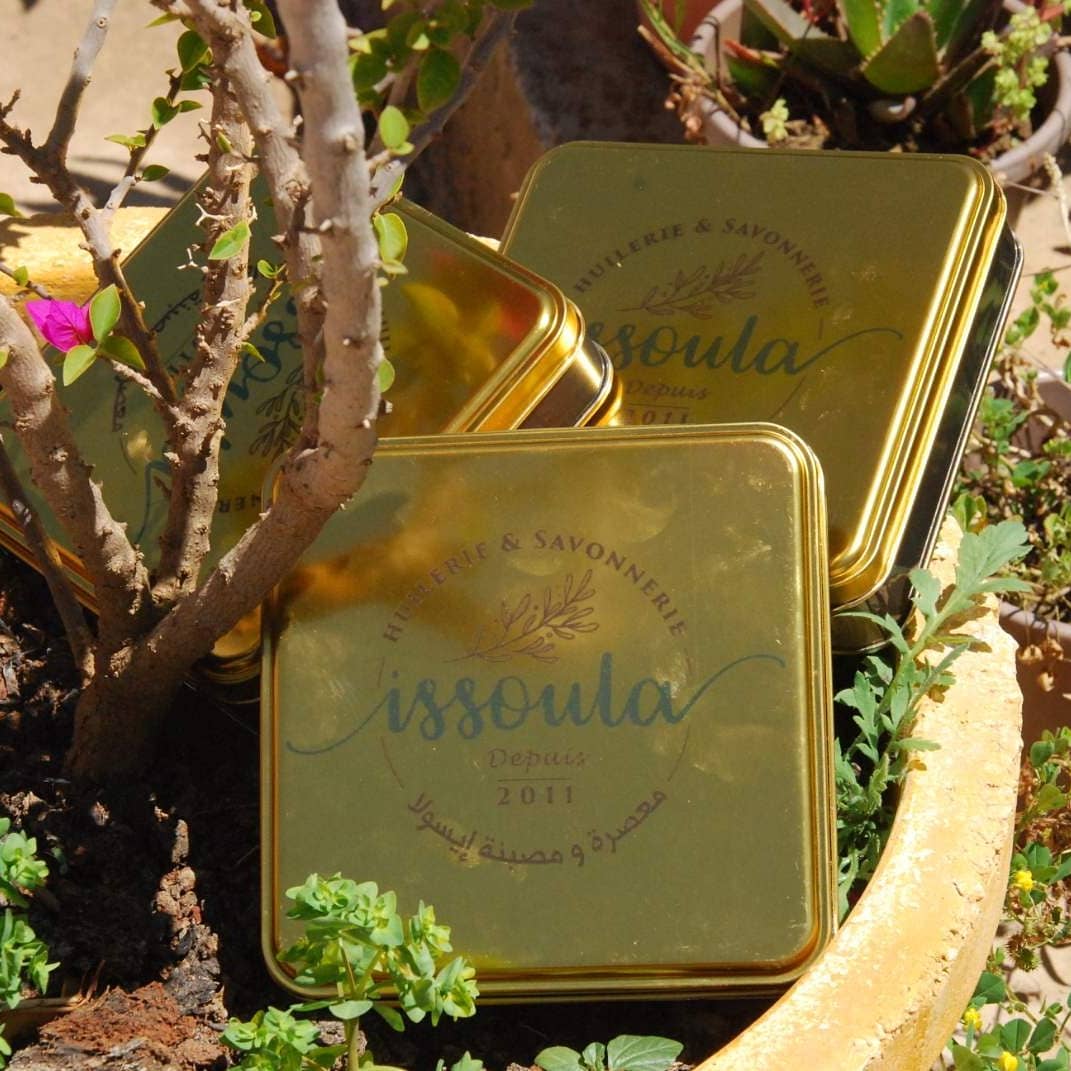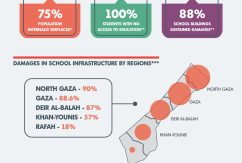Grounded in Heritage, Aspiring to Innovation: Dahbia Abbas’ Story
In the town of Bechloul, in the Kabylia region of Algeria, where olive trees sway with the rhythm of the wind, Dahbia Abbas and her sister run a thriving business, Issoula. They benefited from the EU’s support, through PASA (Support Programme for the Agriculture Sector, including in water management, agro-industry and agricultural pollution), propelling their work to new heights.

From Corporate Crossroads to Olive Groves: A Childhood Dream
Dahbia studied business management and found herself at a crossroads after working for a company post-graduation. The corporate world felt confining, and she yearned for something more. “I wasn’t where I was supposed to be. I felt like I needed to find myself,” Dahbia reflected on her early career.
In 2011, the winds of change were blowing in Algeria’s business landscape, making it easier for aspiring entrepreneurs to take the plunge. Dahbia decided to break free from the traditional office setting. With nothing but her degree and a vision, she stepped into the entrepreneurial realm, determined never to work for anyone again.
Hailing from a region abundant in olive trees, Dahbia looked to her roots for inspiration. She recalled her childhood fascination with the oil press her cousins owned. “I didn’t realise it then, but somehow I was making a childhood dream come true.”
Thus, in 2011, the chapter of Issoula began, named after a Berber word signifying a breaker of taboos. “When I told him about my idea, my late father immediately told me the business had to be named Issoula” she confesses.
Dahbia started small, purchasing her first machines and pressing olives for farmers without buying them, simply being paid for her pressing services. Her first year didn’t yield profits, but she had laid the foundation for something greater. “I didn’t make a profit, but at least I had my machines and ideas!” she declared.
As the years passed, Issoula’s reputation for cleanliness, timeliness, and quality work spread. The business evolved, and Dahbia still encountered challenges, primarily the seasonality of olive oil production and financial constraints.


An Epiphany at the Gym: the Story of Artisanal Innovation
The turning point came when a casual conversation at the gym led to an epiphany. A fellow gym-goer suggested to Dahbia the idea of making soap from the by-products of olive oil production. This revelation marked the birth of a new chapter for Issoula.
Dahbia and her sister, Nouara, delved into soap-making, getting training in France and Tunisia. In order to accompany this growth, they hired staff, creating employment opportunities for local rural women.
Channelling an ancestral art rooted in the Mediterranean tradition, Dahbia and her sister Nouara embraced soap making from olive oil. This craft, passed down through generations of women, found a revitalised spirit in the heart of Algeria. Dahbia and Nouara not only revived a traditional process but also elevated it, creating a harmonious blend of heritage and innovation.
“It’s not the oil press from 2011 that worked two months a year. We have an oil press and a soap-making business now, and Issoula is a registered brand. It sounds easy when I tell it, but it took years of hard work,” Dahbia shared.
Issoula, once a small olive oil press, had transformed into a renowned business, offering a total of 21 products, from soaps to creams and scented candles. The sisters’ commitment to quality, aesthetic packaging, and dedication to sustainable practices earned them recognition. They even garnered a prize for waste valorisation, turning olive oil by-products and even leaves into potpourri.
“The story of Issoula isn’t just the story of a company; it’s my story too,” Dahbia asserted.


PASA’s Pivotal Role: Cultivating Growth and Resilience
Dahbia Abbas found support in the “Support Programme for the Agricultural Sector, including water management, agro-industry, and agricultural pollution (PASA).” The programme’s core objectives revolve around developing the agricultural value chain to stimulate local economic dynamics, territorial governance, and national coordination. The programme targets small farmers, particularly those in associations and cooperatives, Very Small Enterprises (VSEs), and Small Medium Enterprises (SMEs), with a focus on empowering youth and women.
The journey to enhance the quality of Issoula’s products took a leap when PASA financed state-of-the-art machines for bottling oil. “Bottling by hand was slow; we couldn’t diversify, especially with the elegant bottles that required machines. PASA’s support changed everything,” Dahbia acknowledged.
With the newly acquired machinery, the production process became more efficient and Issoula could finally use fancier bottles, elevating the overall quality and aesthetics of the products.
PASA’s impact also touched Dahbia’s life on a personal level. During a challenging period, the support became more than financial aid; it was a lifeline. Dahbia says that PASA’s positive response became a catalyst for renewed faith and determination. “It pushed us; it was a motivation to give it our all and grow the project,” she emphasised.
She concluded by emphasising the transformative power of positive reinforcement, highlighting the profound impact of PASA. “Even if one person says something positive, that’s already a push, let alone PASA, a big project that studied our enterprise and came to say, ‘You deserve support.'”
PASA had not only invested in Issoula’s machinery but had sown the seeds of inspiration and resilience, fostering a spirit that went beyond the confines of a factory and reached into the very soul of Dahbia’s entrepreneurial journey. As she puts it “PASA is an encouragement for those aspiring to succeed.”


































